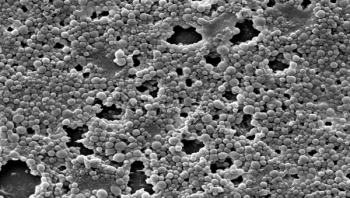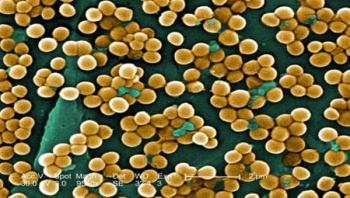
A new drug with the potential to aid in vaccine development has been identified by researchers at UT Southwestern Medical Center.

A new drug with the potential to aid in vaccine development has been identified by researchers at UT Southwestern Medical Center.






This report reviews the current global and national efforts to address antibiotic and antimicrobial resistance, and within this context, explores studies examining potential decreased microbial sensitivity to chemical disinfectants used in the healthcare environment.



Biofilms, or colonies of bacteria growing on surfaces and medical devices, can inflict intractable or recurring disease. During colonization, biofilms develop characteristics and behaviors more dangerous and powerful than those of planktonic (singleton) bacteria. In fact, these insidious microscopic collectives could be regarded as biological case studies in “strength in numbers” as they unify against external assault, resisting the host immune response as well as antimicrobials, and exact their high human and fiscal costs. Puzzlingly, although biofilms are a ubiquitous, well documented cause of infection, they receive only a modicum of the attention they clearly merit.

Screening patients for methicillin-resistant Staphylococcus aureus (MRSA) has become a controversial topic causing heated debate. In fact, many healthcare professionals consider the question of whether to test patients for MRSA before admission to be one of the most compelling issues in modern healthcare.









Researchers at Johns Hopkins say an online "pop quiz" they developed in 2009 shows promising accuracy in predicting sexually transmitted infections (STIs) in young women, although not, apparently, in young men.


Healthcare-acquired infections (HAIs) are among the leading causes of patient disability and mortality as well as financial loss for health care institutions with hundreds of millions of patients affected and the United States losing approximately $6.5 billion annually. Despite efforts to solve the HAI problem, 3.5 percent to 12 percent of patients are affected each year. HAI are often due to factors such as insufficient application of hygienic practices and hospital protocols.(1)

Zika virus is spreading rapidly through the Americas and could potentially reach all countries except Canada and continental Chile, the director of the Pan American Health Organization (PAHO), Dr. Carissa F. Etienne, told health officials from around the world during a briefing of the executive board of the World Health Organization (WHO) in Geneva.


The Molecular Microbiology Research Group in the UAB's Department of Genetics and Microbiology describes for the first time, in a work published in PLOSone, a model of behavior of a bacterial colony that shows how the colony protects itself against toxic substances, like antibiotics, during the colonization process.





A new study published in the Journal of Medical Entomology is the first to report that bed bugs have developed resistance to a class of insecticides known as neonicotinoids, or neonics, the shortened name. Neonics are the most widely used group of insecticides today, and several products have been developed for bed bug control over the past few years that combine neonics with pyrethroids, another class of insecticide.